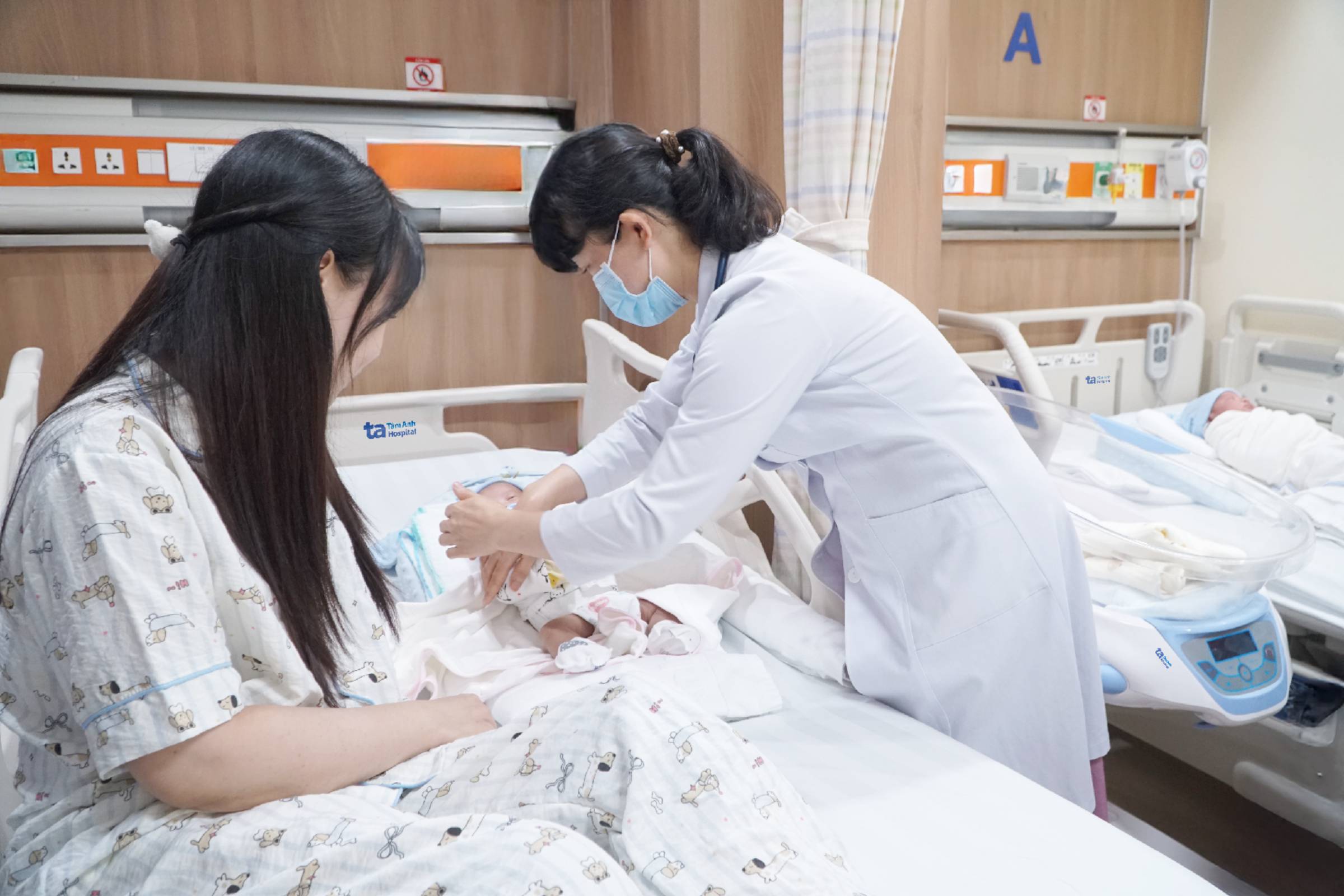The twins were born through in-vitro fertilization (IVF) to Thu (33 years old) and her husband after 9 years of infertility. 16 days after embryo transfer, Thu experienced bleeding and a 10-20% fluid collection, requiring progesterone injections to maintain the pregnancy. At 24 weeks, her cervix shortened from 35 mm to 6 mm, necessitating emergency cervical cerclage. About 4 weeks later, she experienced lower abdominal pain, received two doses of steroids to mature the babies’ lungs, and gave birth to the twins at 28 weeks.
Weighing approximately 1.2 kg each, the babies were placed on ventilators, given surfactant to improve breathing, and fed through feeding tubes and orally. Thu, who has a history of stress disorders, experienced exacerbated symptoms due to the premature birth. Unable to see her babies for 10 days after delivery, she showed signs of depression.
After 41 days of treatment, the twins gained weight, reaching over 1.7 kg. While they only needed intermittent oxygen support, they still experienced episodes of cyanosis, couldn't feed, and had a weak swallowing reflex. They were transferred to Tam Anh General Hospital in TP HCM. Dr. Cam Ngoc Phuong, Director of the Neonatal Center, described the team arriving to transport the premature twins with equipment to stabilize their body temperature and provide appropriate oxygen support.
The twins received respiratory and nutritional support, along with feeding practice. Dr. Le Thi Ngoc Dung from the Neonatal Center explained that due to their premature birth and slow weight gain, the team provided intensive nutritional support to help them gain weight more effectively.
The twins also received physical therapy to develop their suck-swallow reflex and gradually wean them off oxygen. Nurses monitored each feeding and guided the parents on how to care for their babies. This helped Thu reduce her stress and focus on her depression treatment. After 34 days, the twins' weight increased from 1.7 kg to over 3 kg. They could breathe and feed independently, had stable vital signs, and were discharged with scheduled follow-up appointments.
 |
Dr. Dung checks the twins' health before discharge and instructs Thu on how to care for them. Photo: Ngoc Chau |
Dr. Dung checks the twins' health before discharge and instructs Thu on how to care for them. Photo: Ngoc Chau
Women who give birth prematurely experience varying degrees of psychological stress, including depression, anxiety, helplessness, disappointment, and guilt. Dr. Dung cited a study showing that nearly 50% of mothers experience anxiety or symptoms of depression while their premature babies are hospitalized. This high level of psychological stress can persist for months or even years after the child is discharged.
Support programs can help reduce stress for parents of premature babies. The Family-centered care model, practiced in many developed countries and implemented at the Neonatal Center of Tam Anh General Hospital, encourages parents and caregivers to participate alongside the medical team in the treatment and nurturing of their babies.
"Neonatal intensive care has made significant strides in recent decades, saving the lives of many extremely low-birth-weight premature babies using non-invasive techniques," Dr. Phuong stated.
Ngoc Chau
| Readers can submit questions about children's health here for doctors to answer. |












